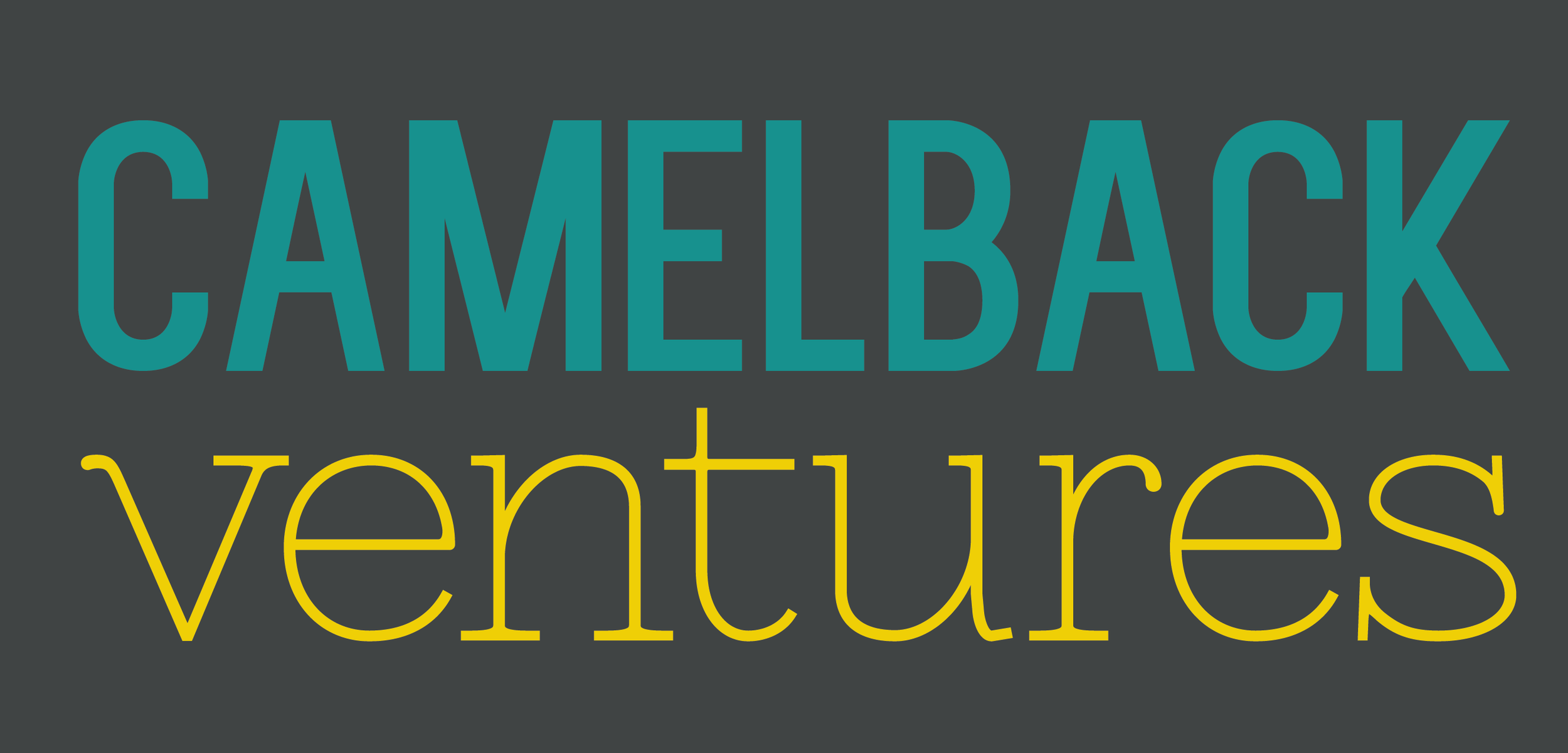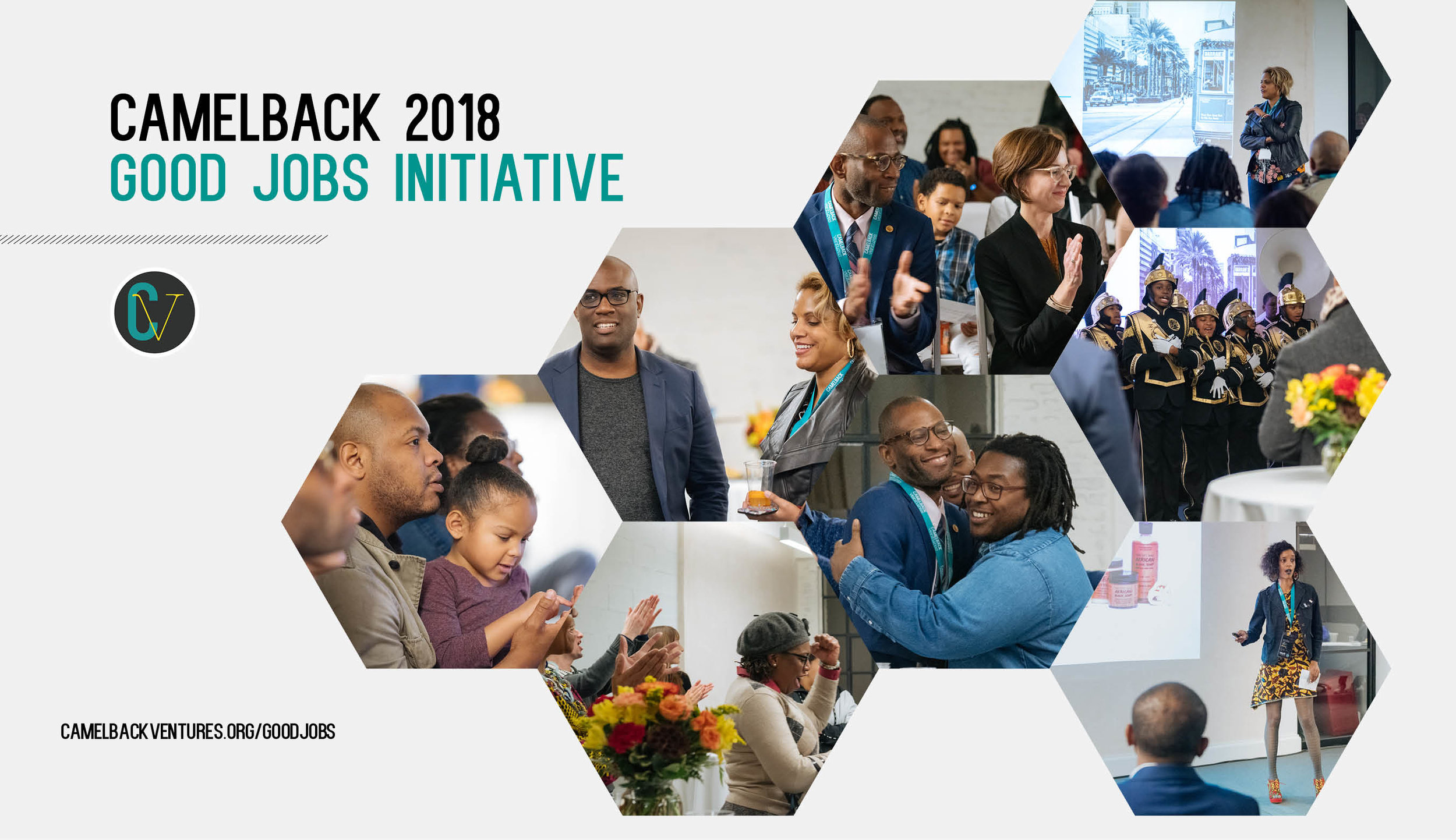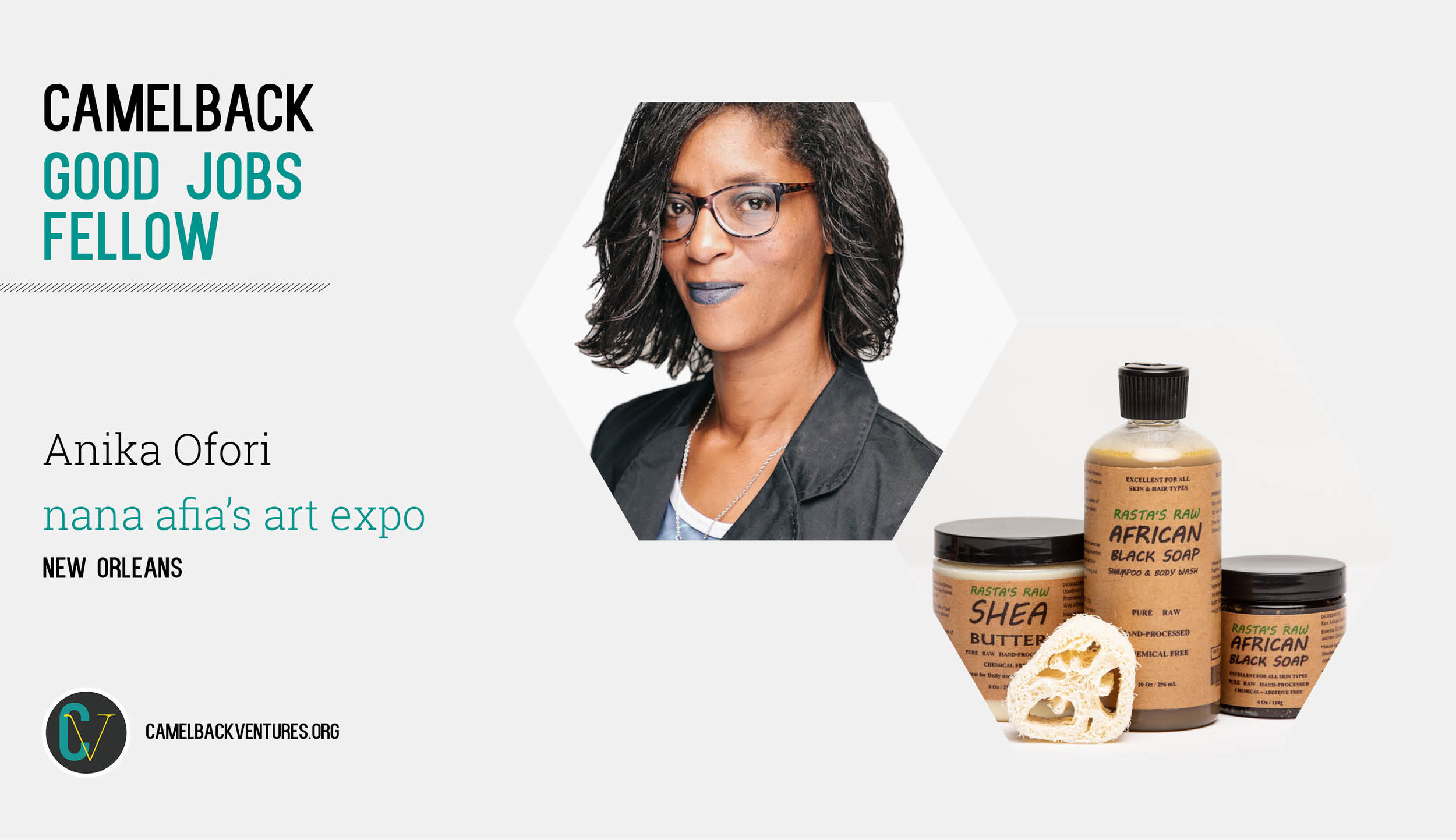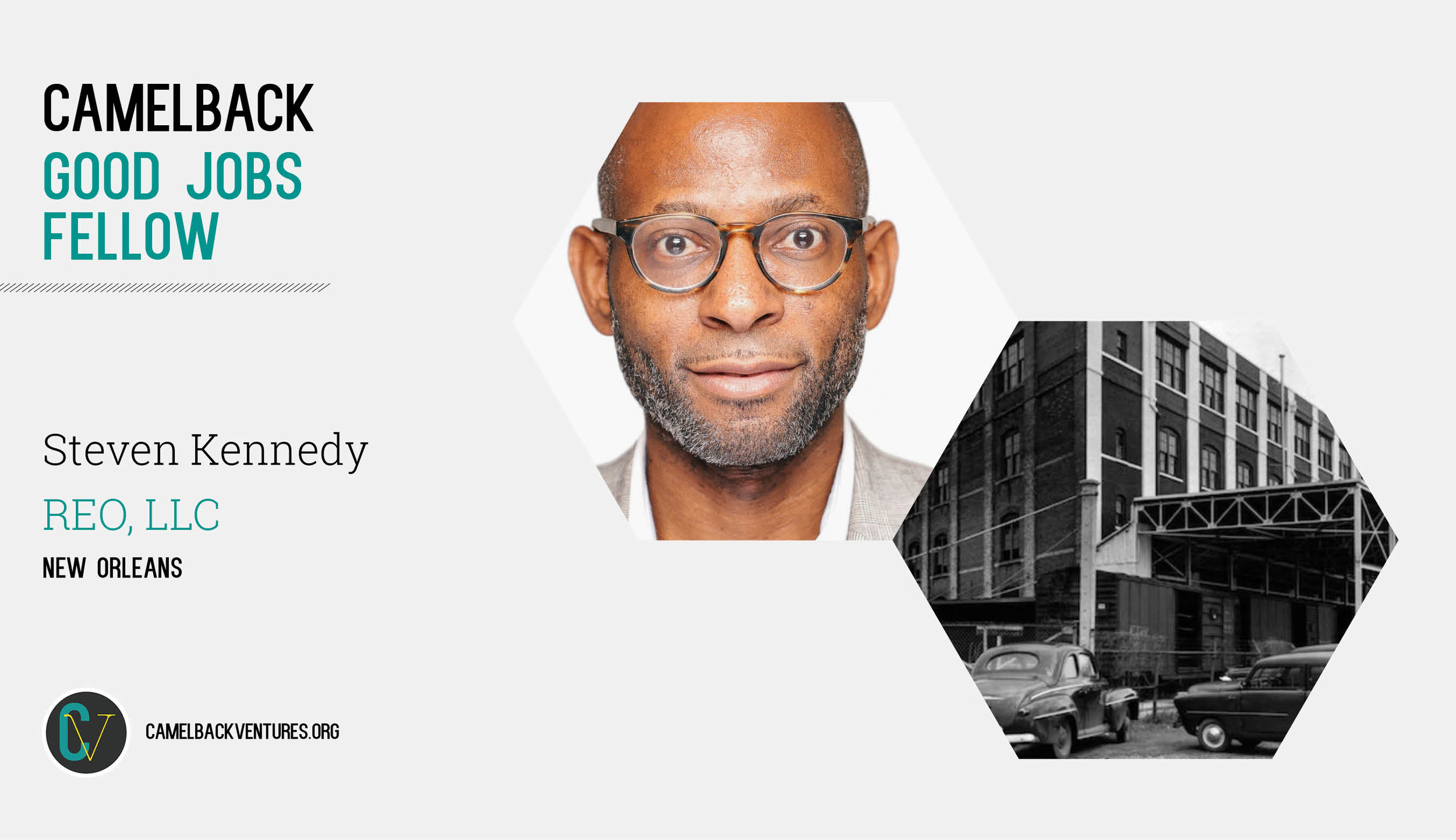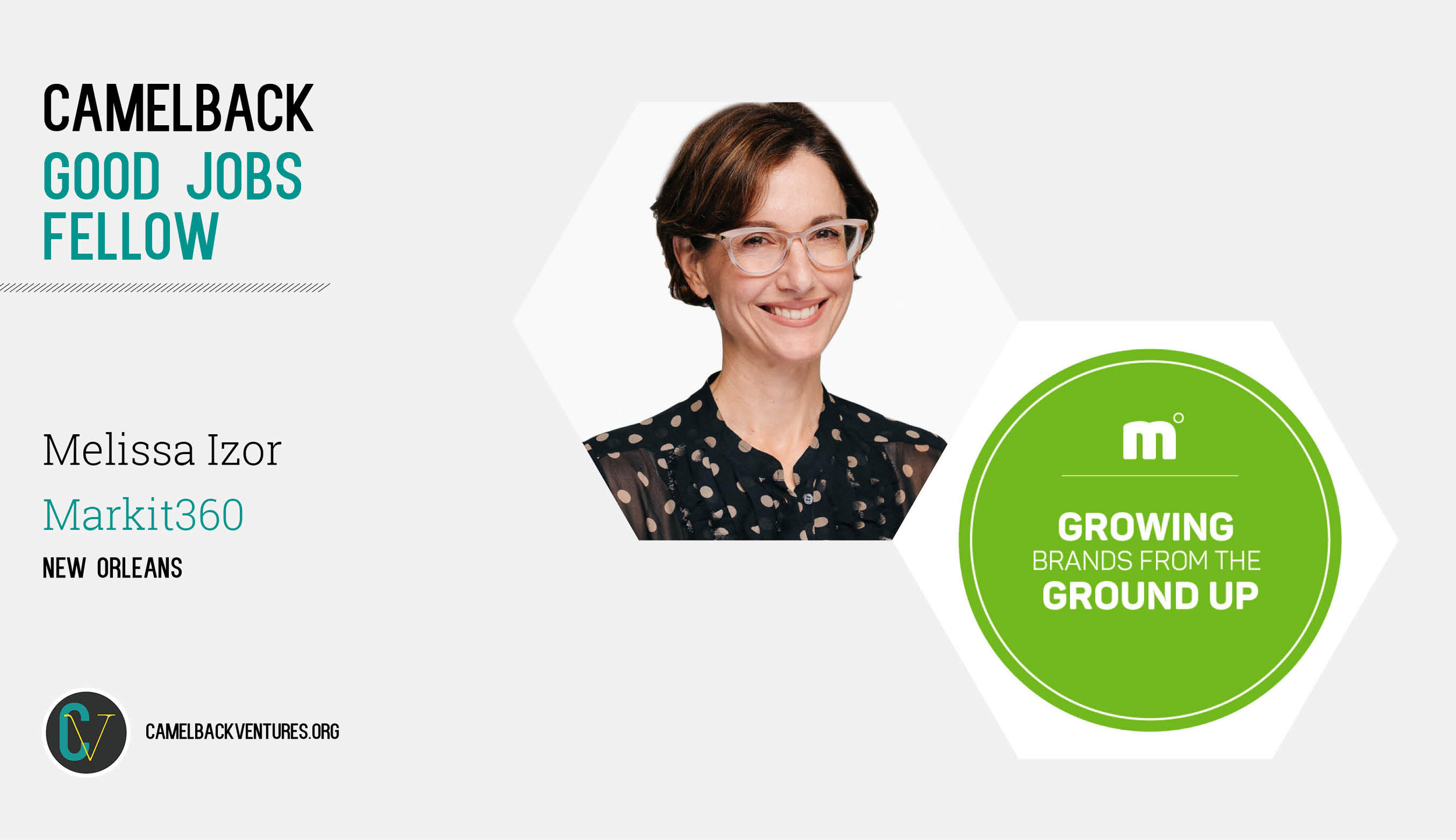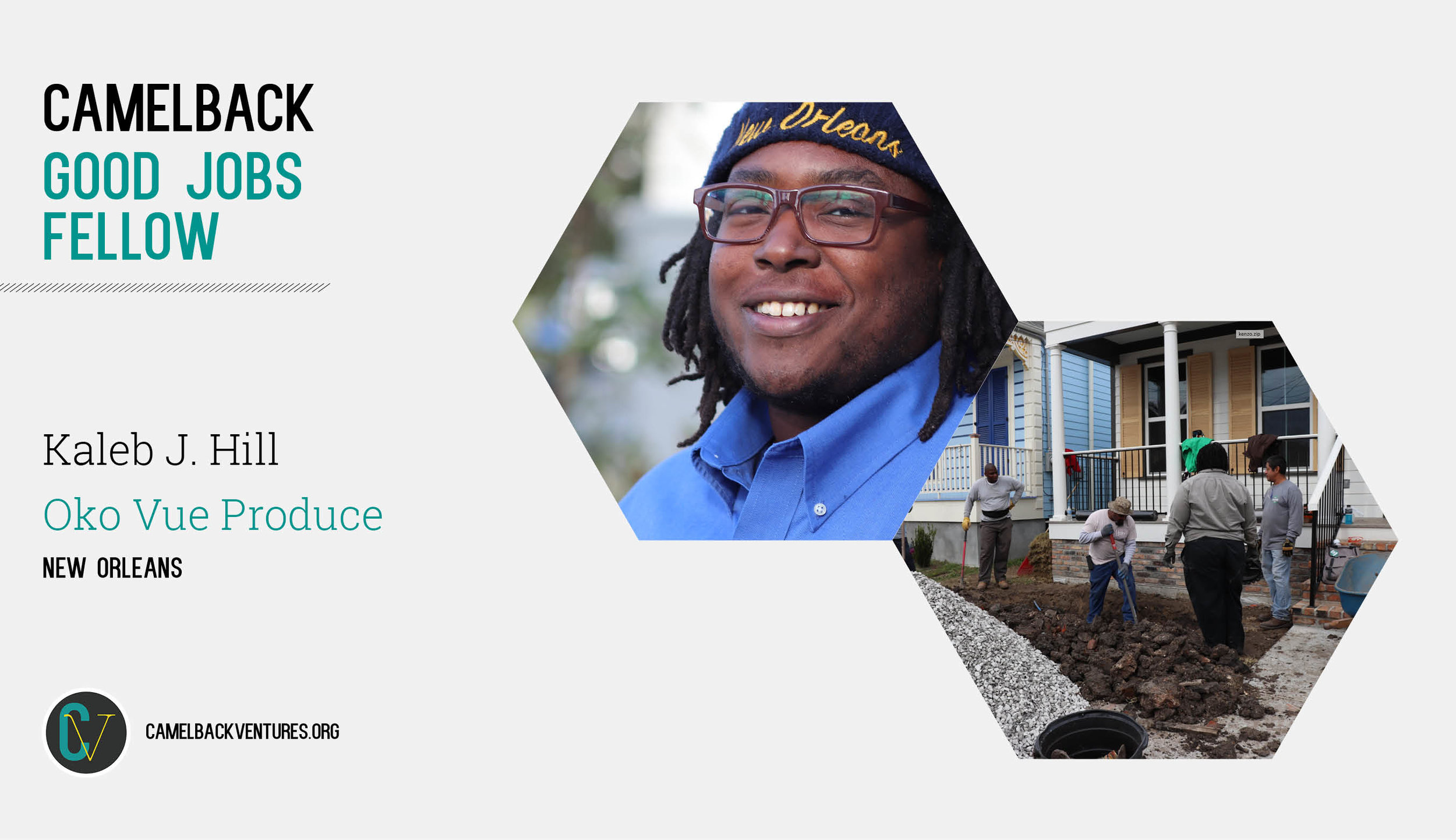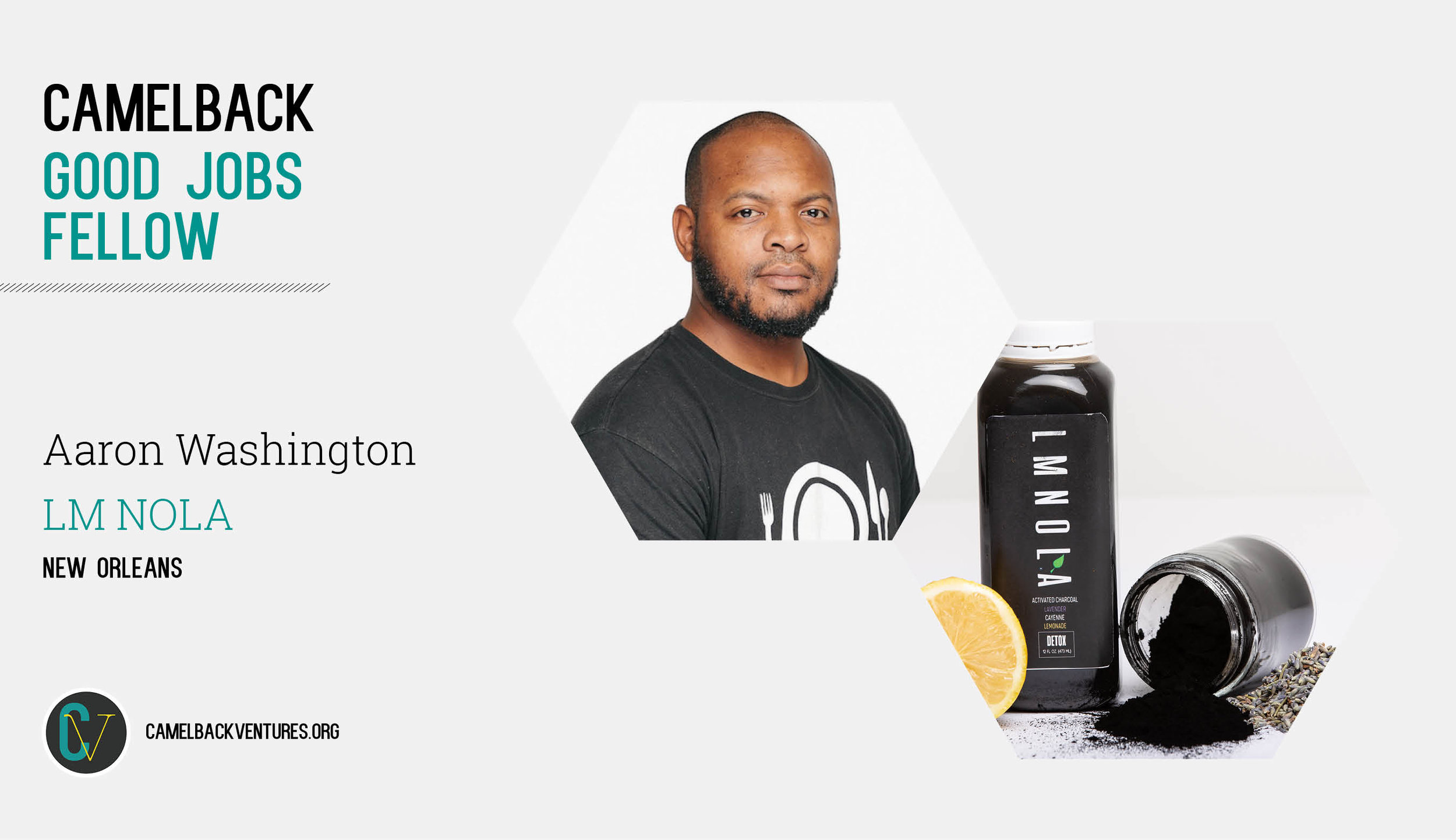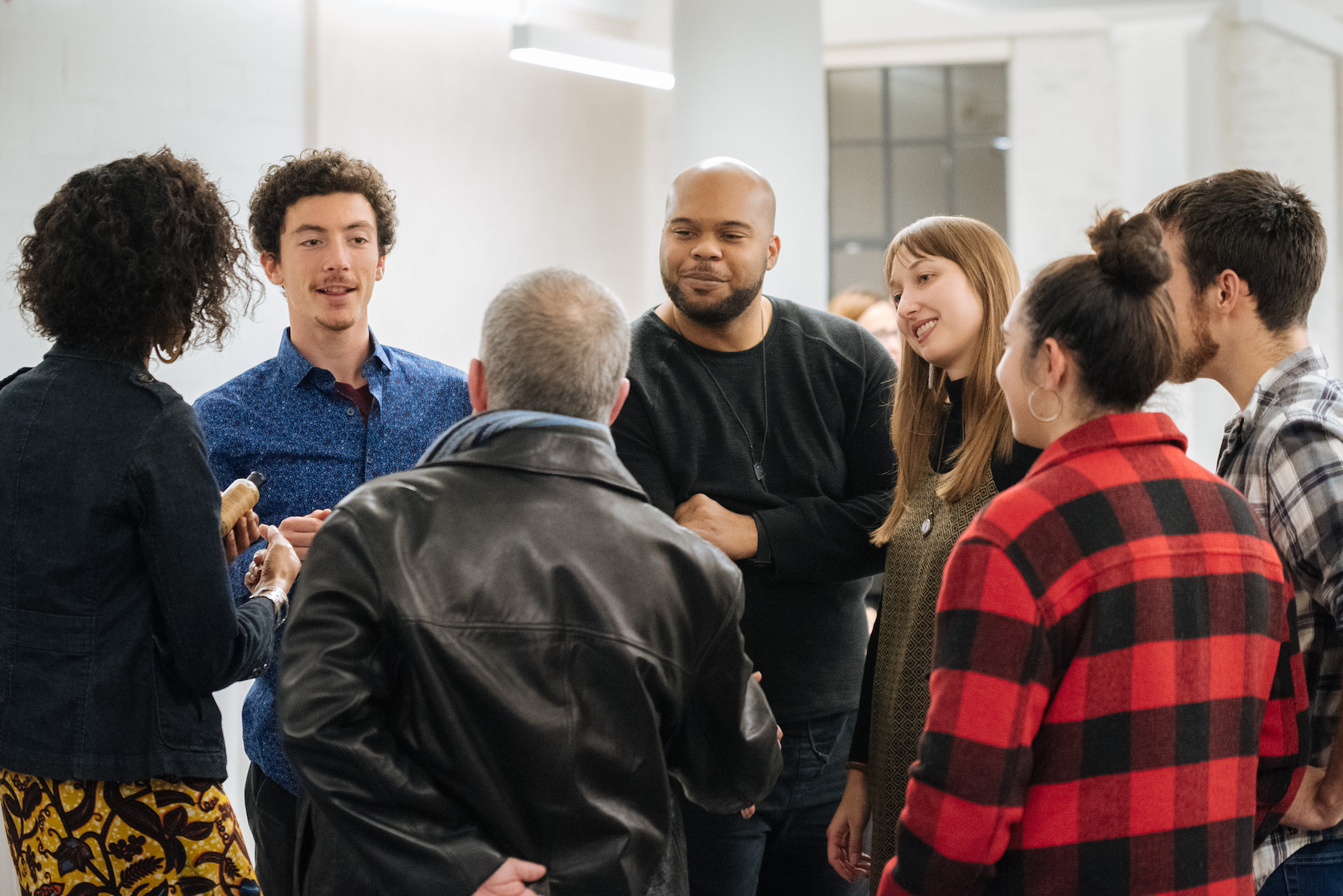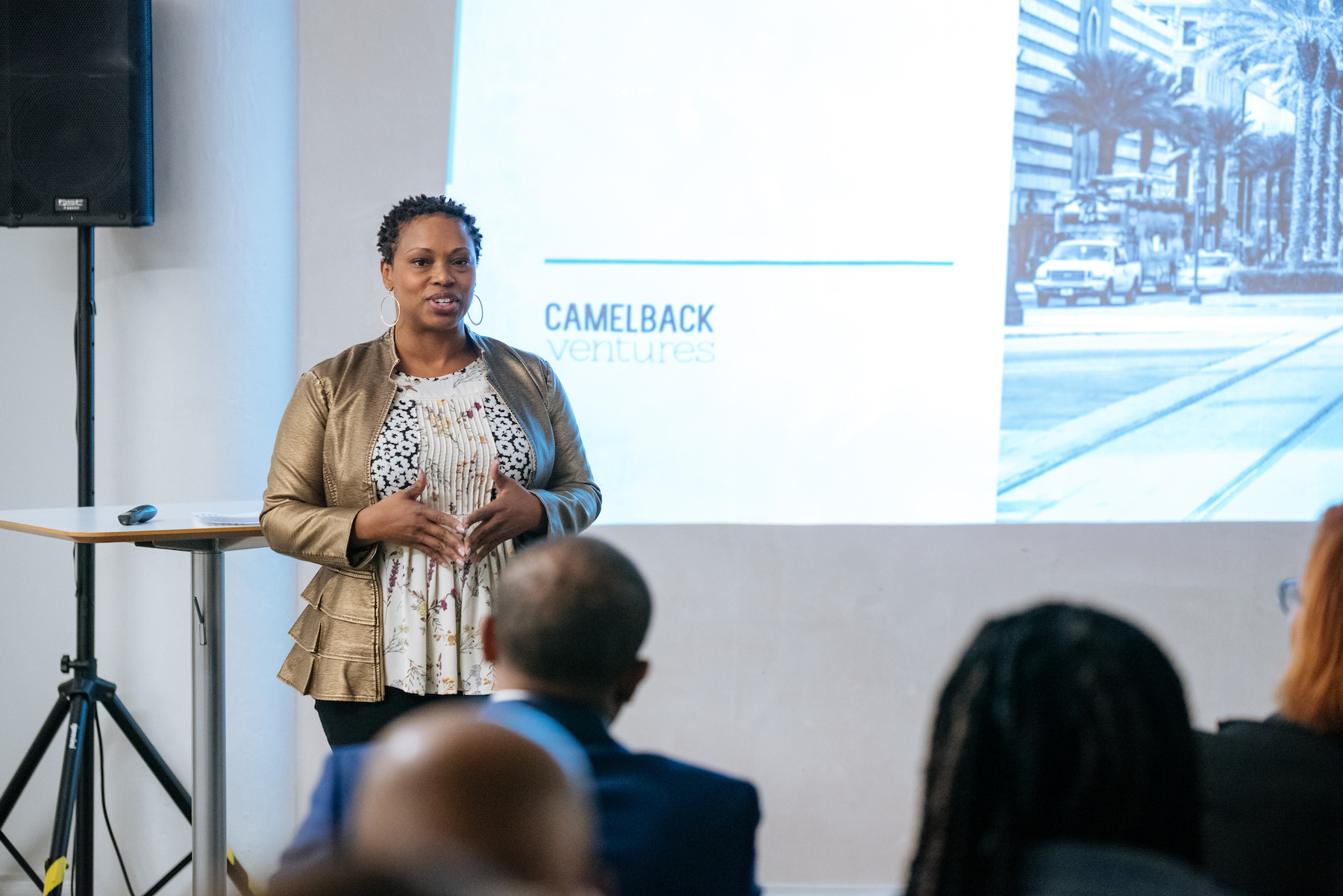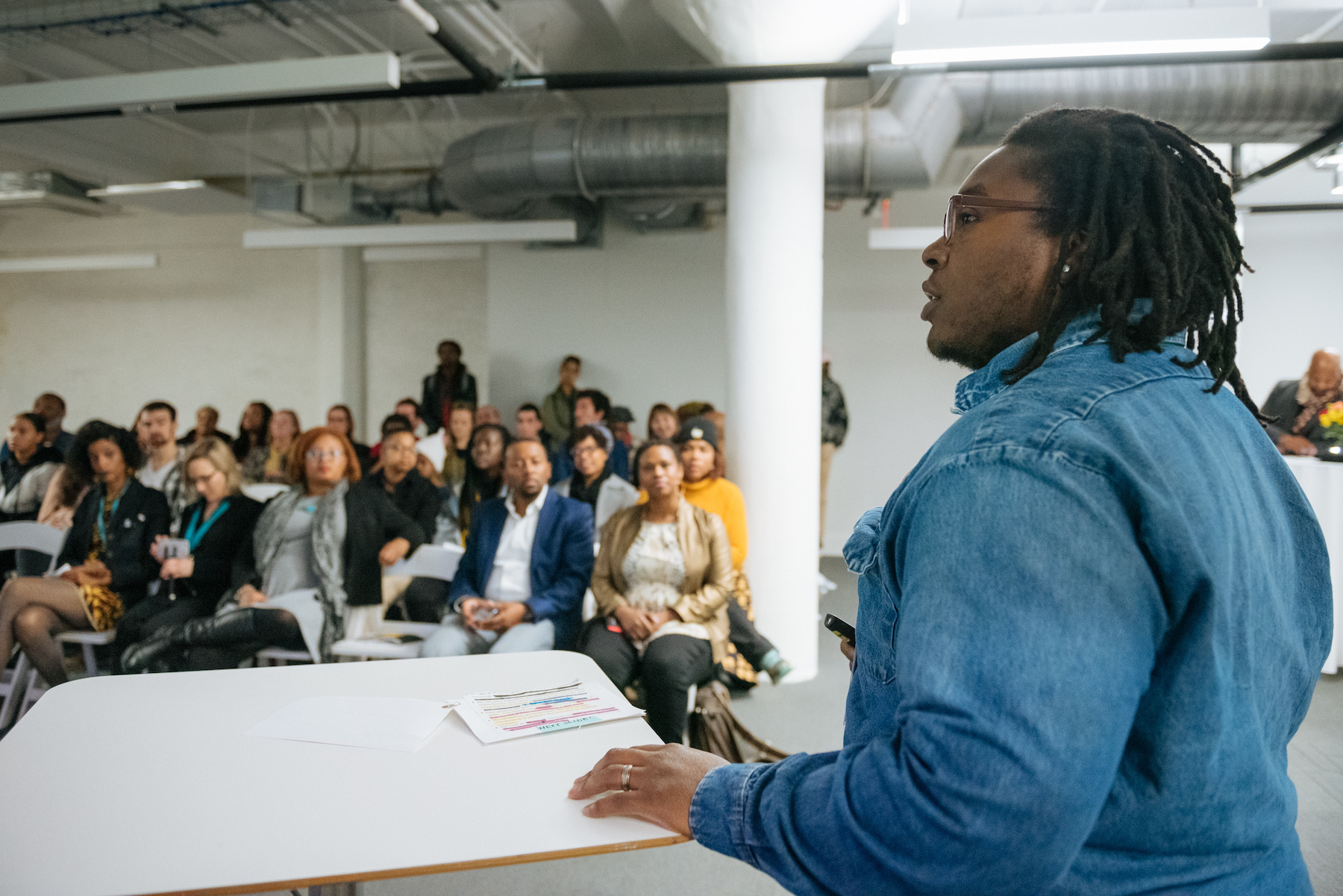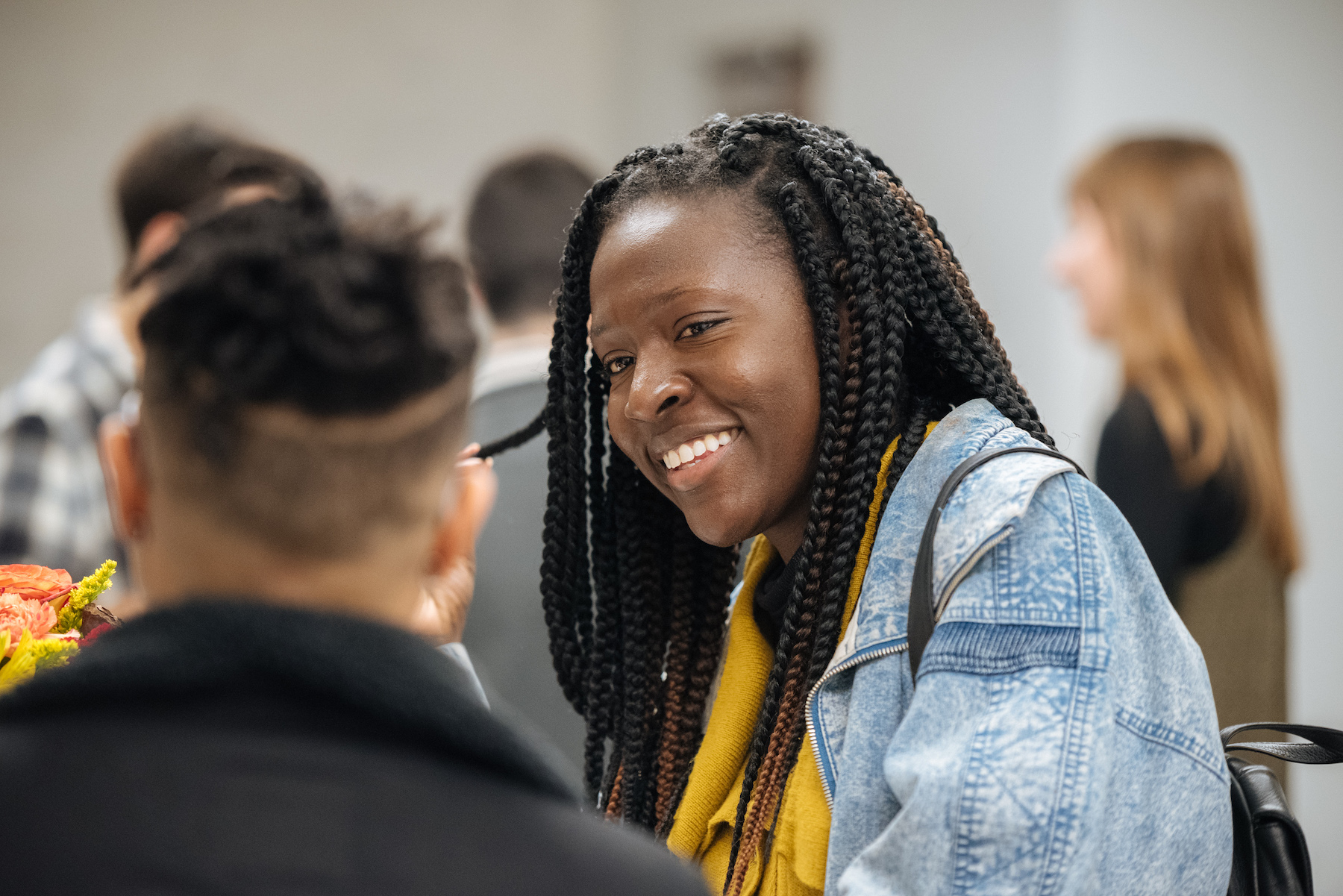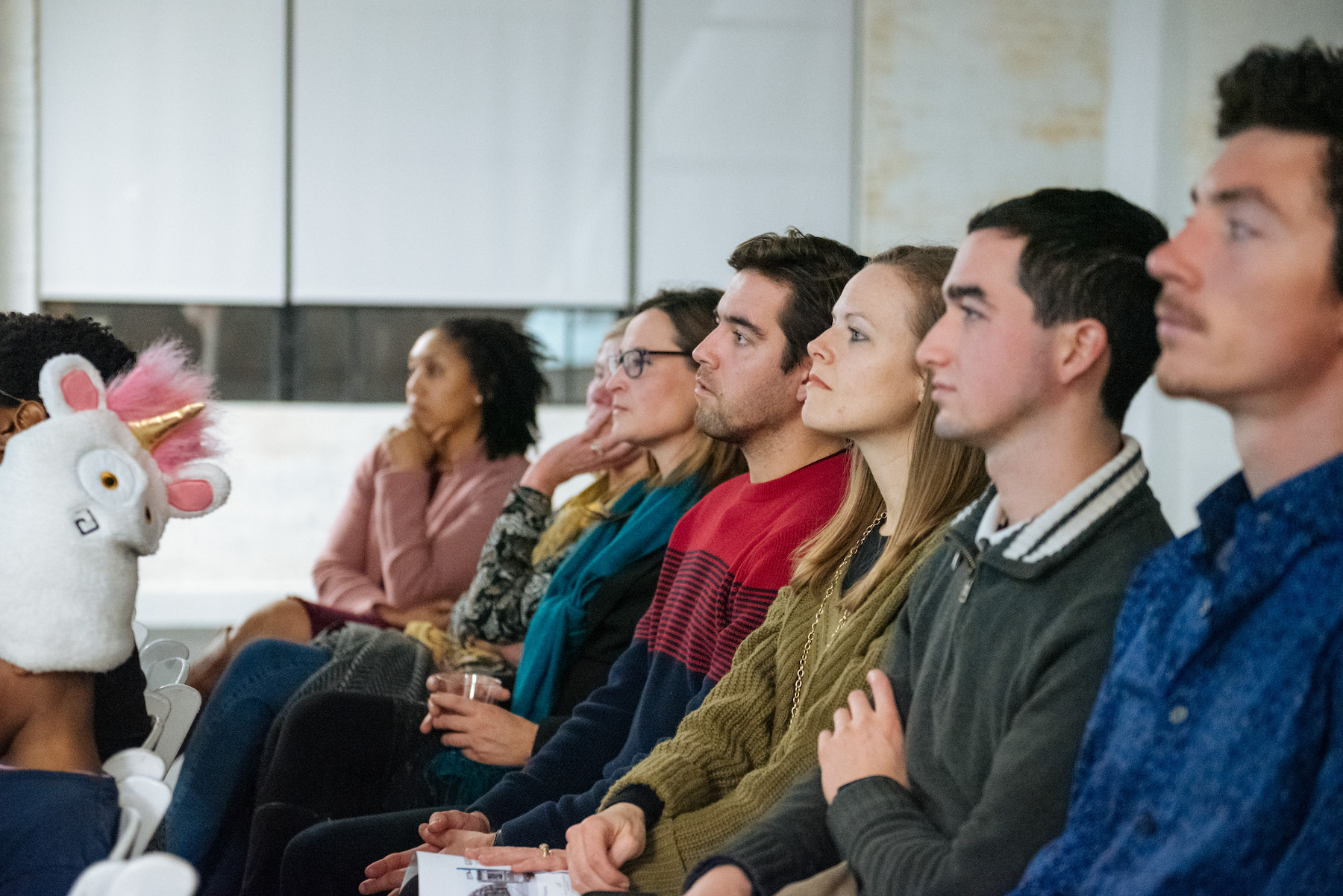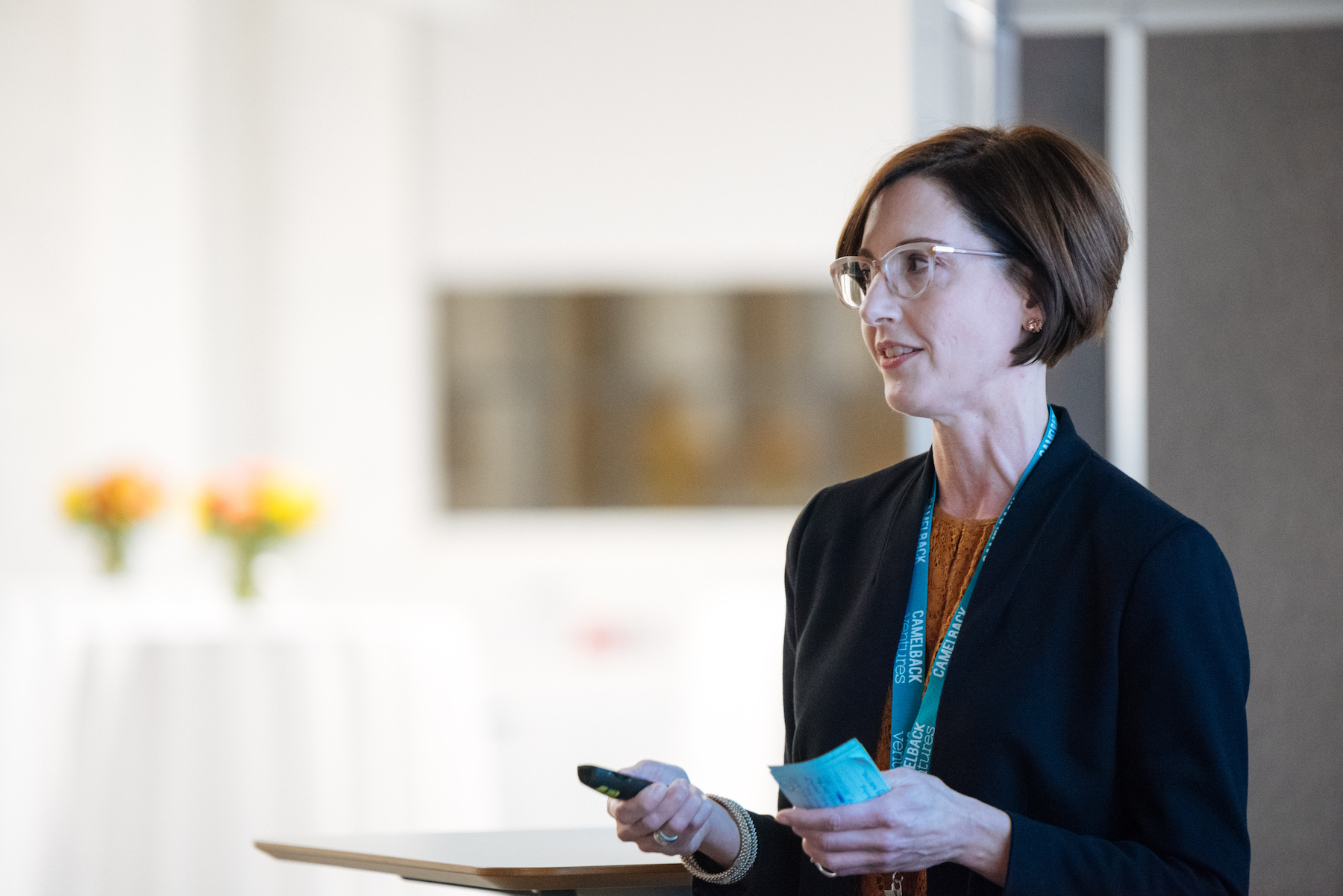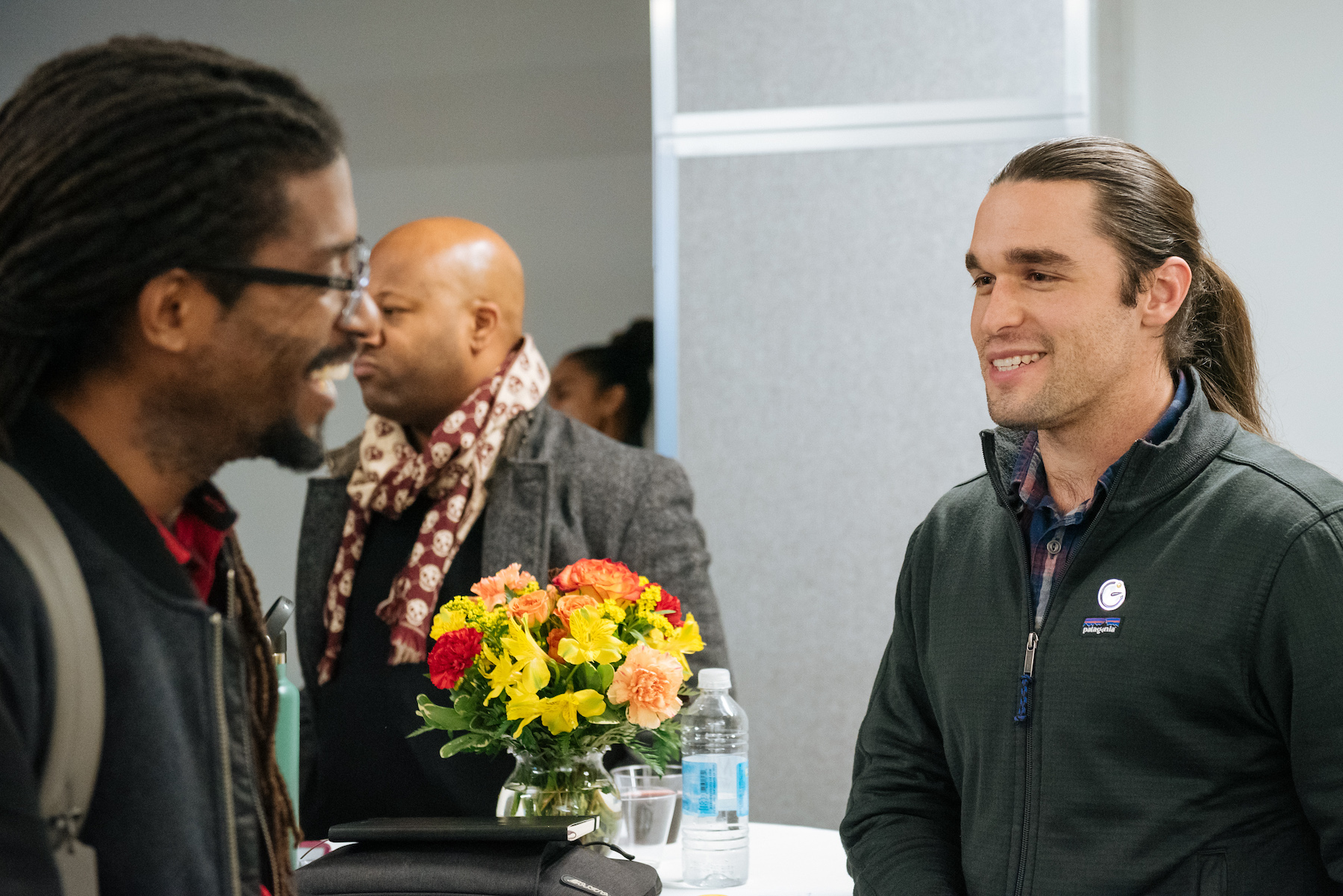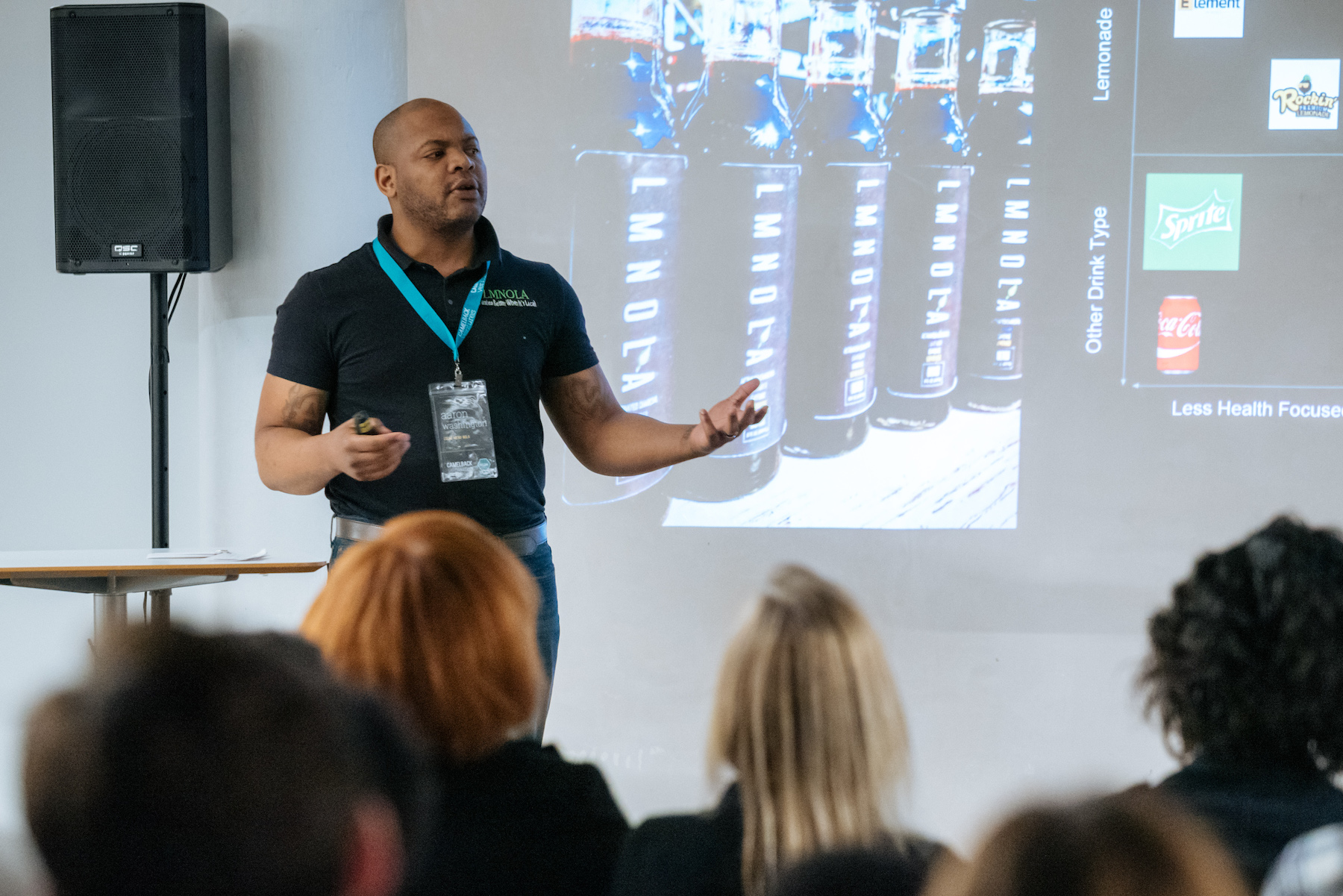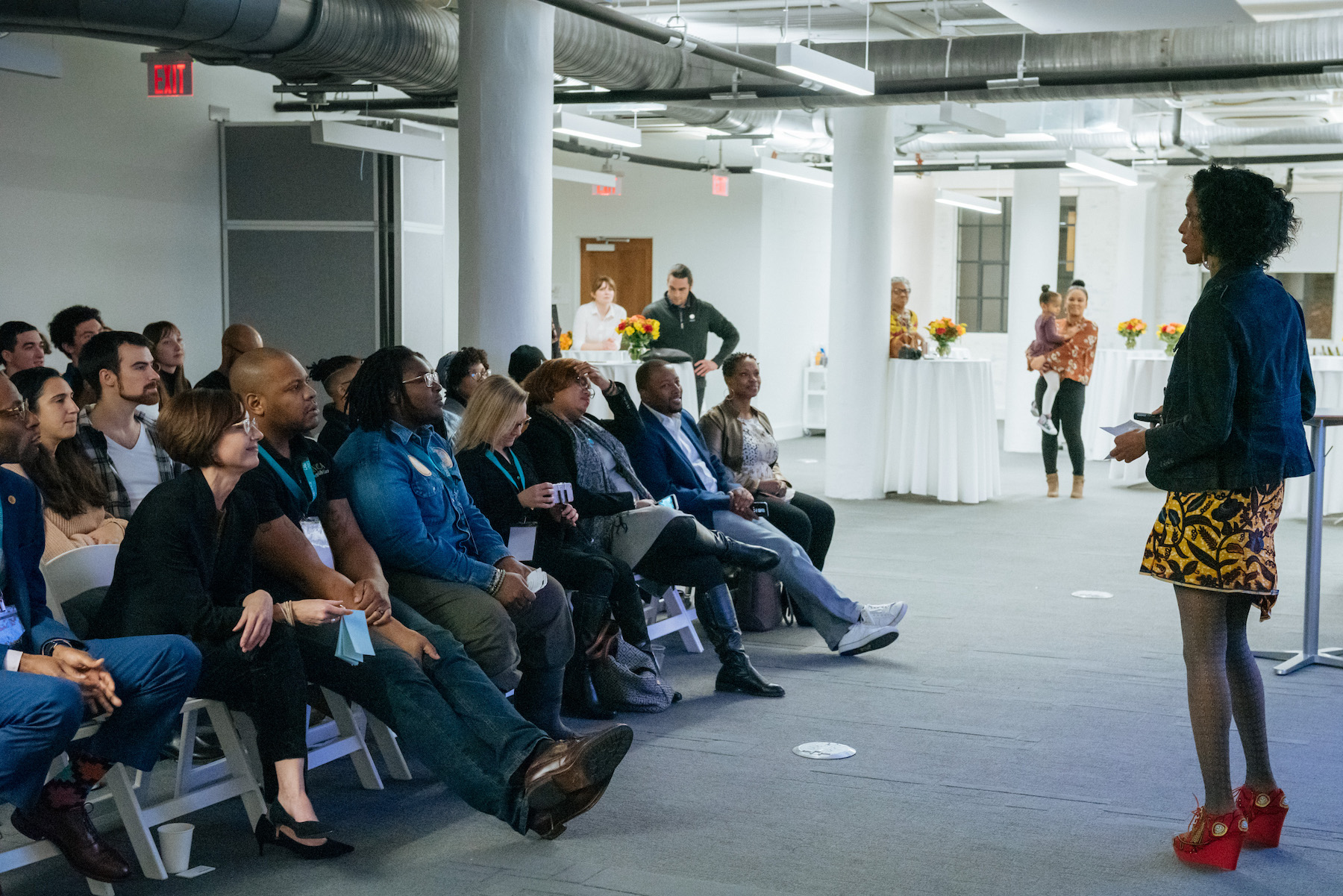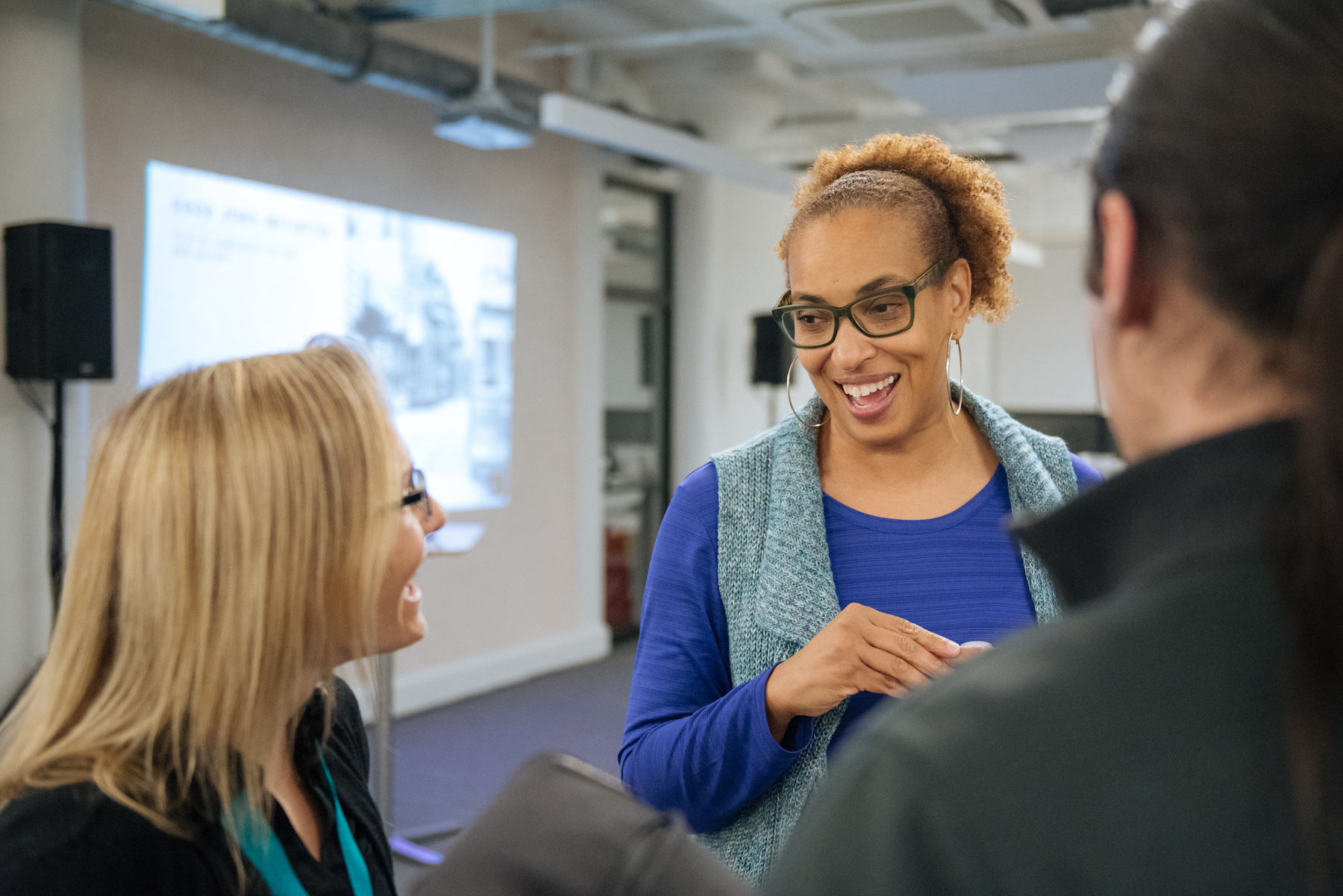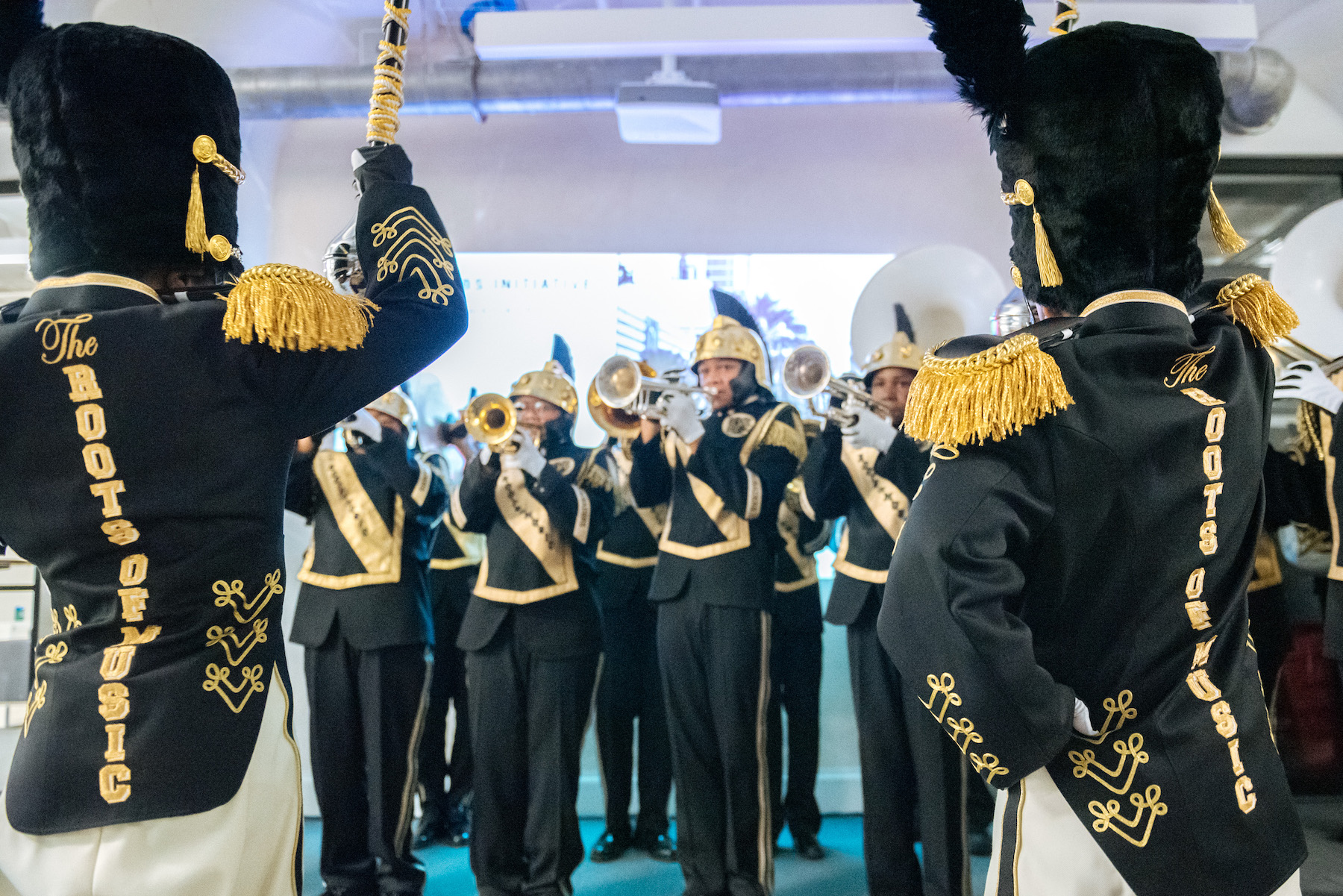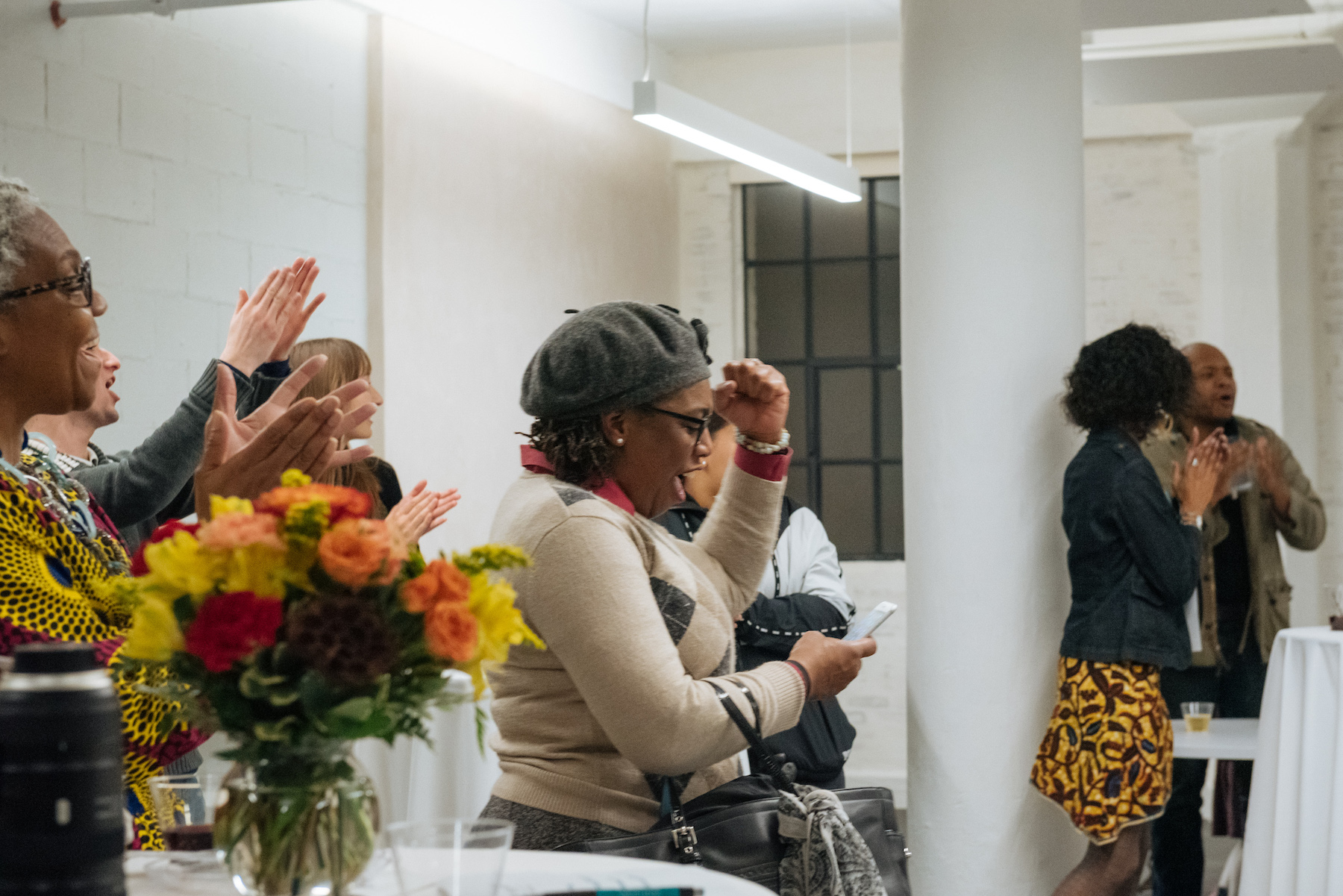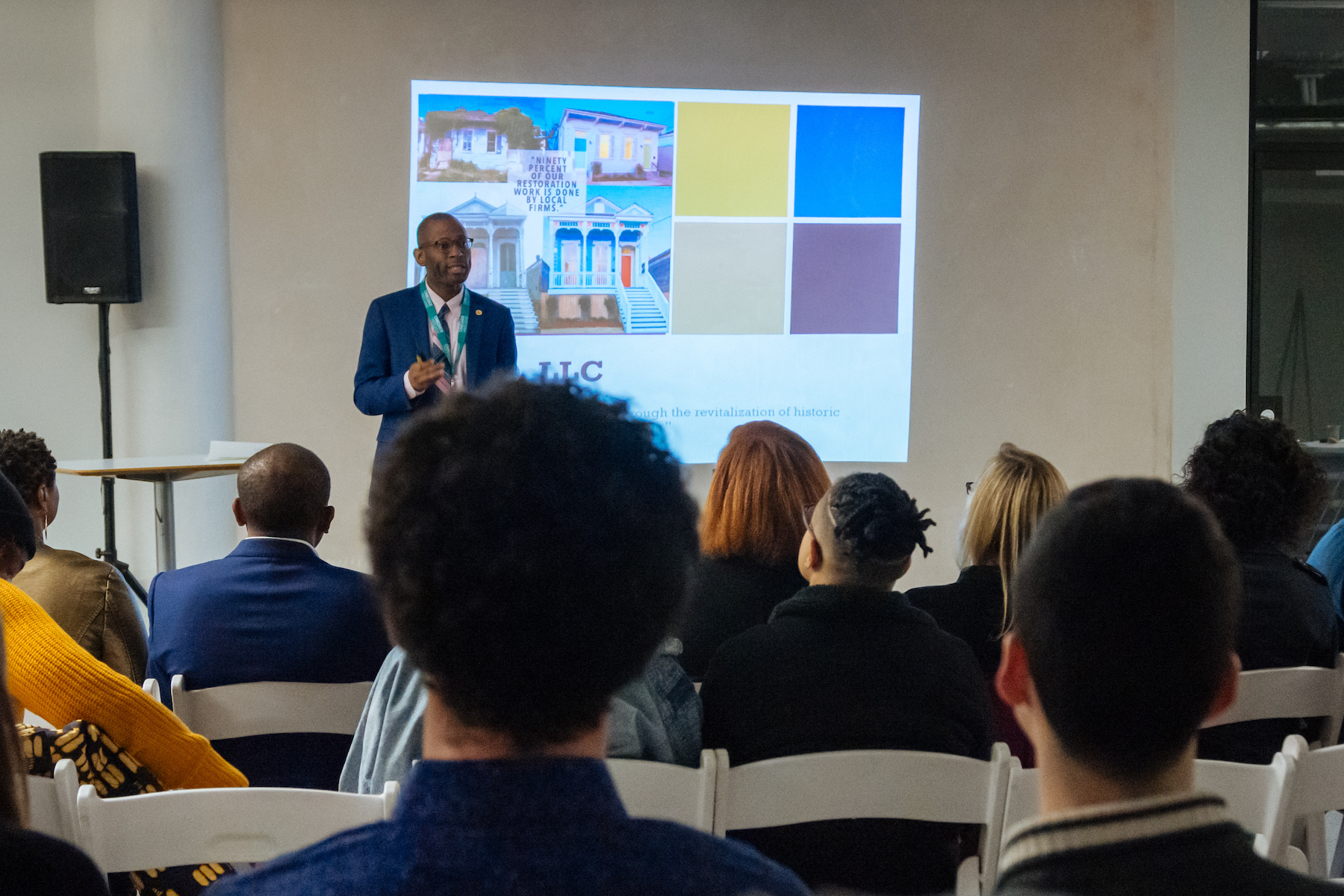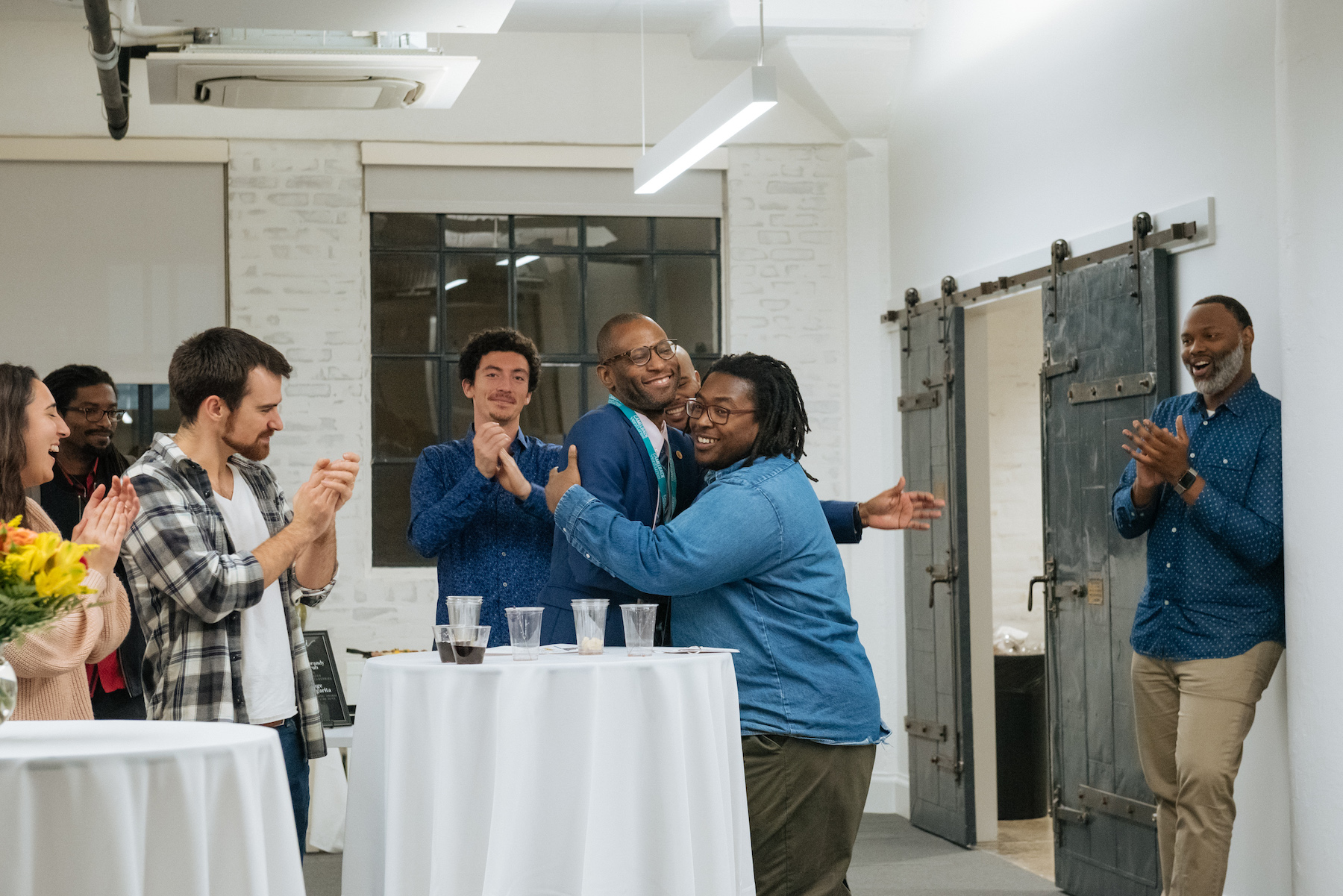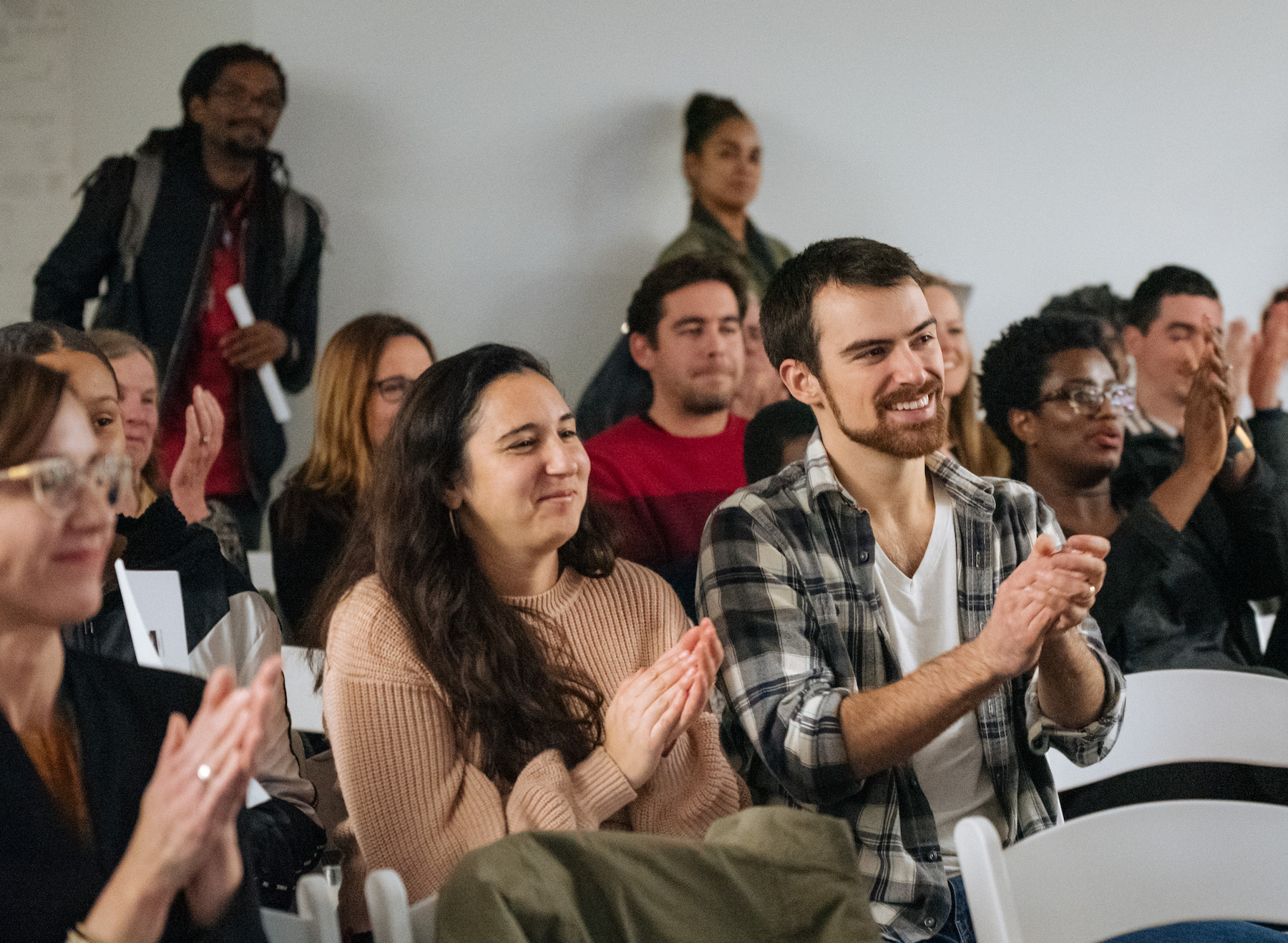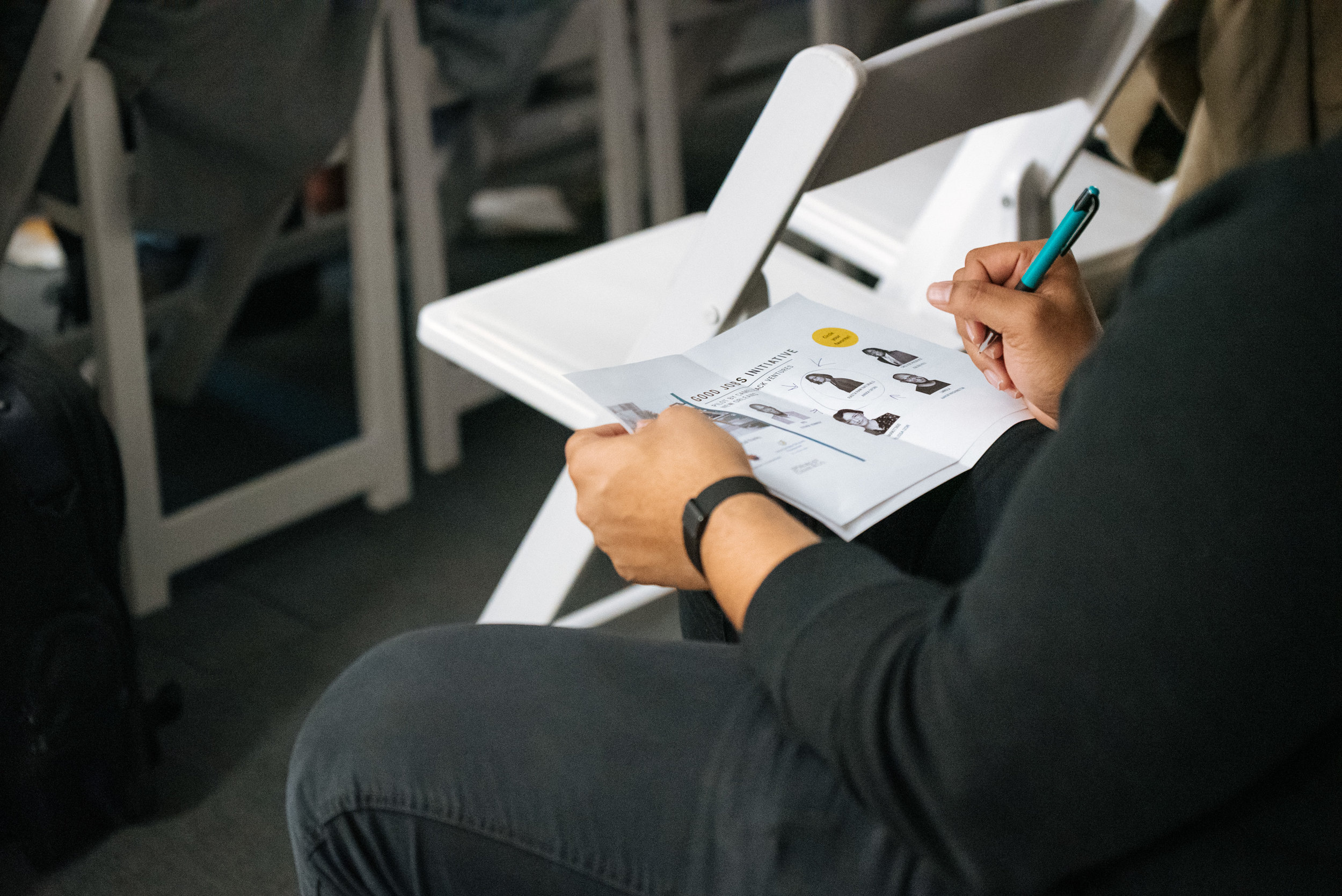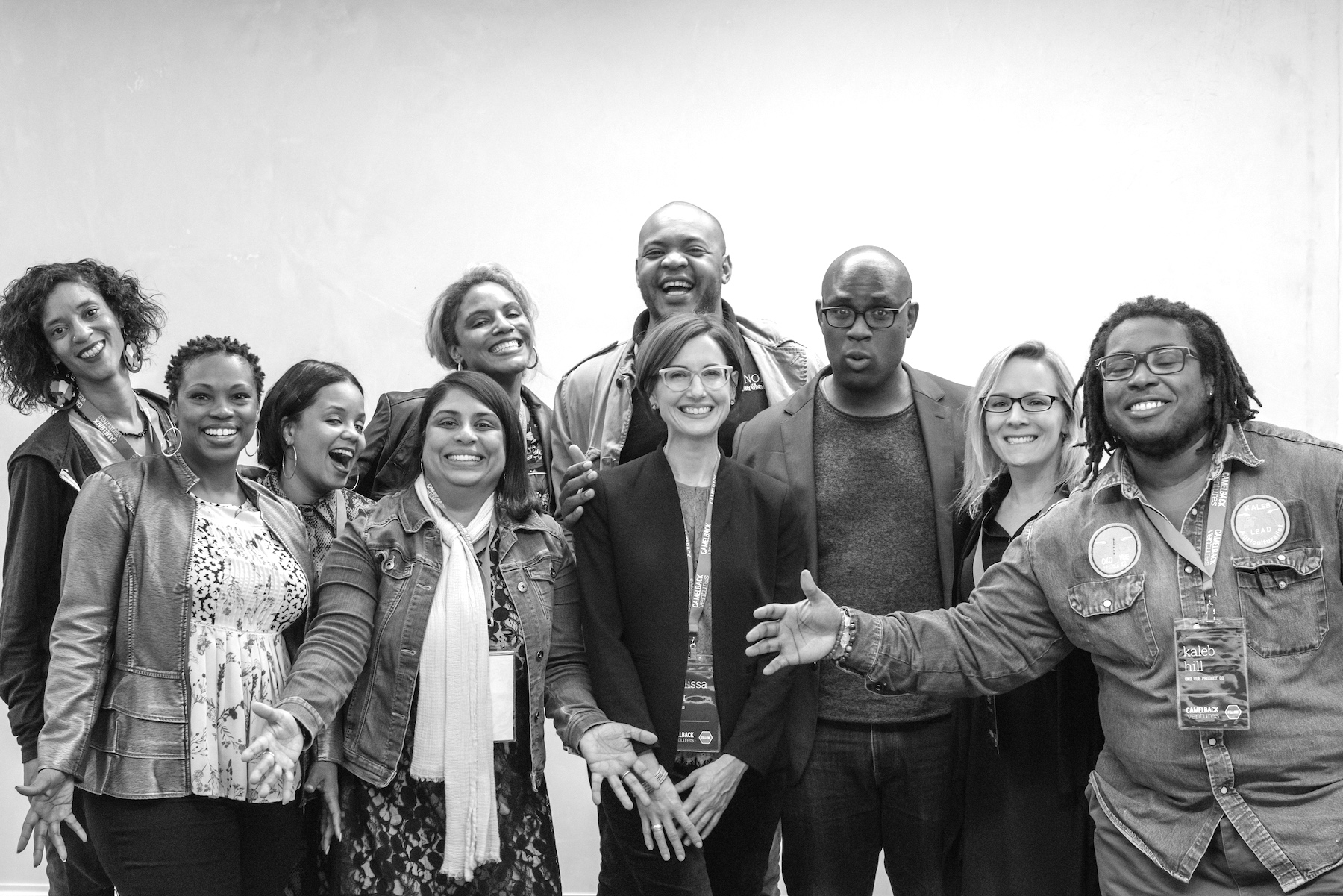Planting the Seeds: Reflections from the Camelback Good Jobs Initiative
“It’s a crime in a rich nation for people to receive starvation wages.”
When our society quotes Dr. King, it often tends to conveniently forget his intense, deep focus on economic justice. His primary focus was of course on civil rights, and that was, he believed, the opportunity to open the gate on what he called “economic equality,” which he would’ve pursued before his assassination in 1968. In the past five years, a series of studies have analyzed the dramatic increase of wealth disparities between Black and Brown families and their White counterparts. (We highlighted a few in our Strategic Plan.) 2015 Camelback Fellow Jonathan Johnson of Rooted School often cites 228 - the number of years it would take for the average Black family to accumulate the same wealth as the average White family today in the United States. When Aaron T. Walker founded Camelback Ventures, he knew economic empowerment would be the second vertical after education.
If a child is hungry, he cannot learn.
“If a child is hungry, he cannot learn. How can he be expected to read? To study? To play nice with the other kids? If a child is afraid she and her mother will be homeless again, how can she prioritize school when her life and safety is at stake?” Aaron expressed these thoughts and others when making the pitch to what would become Camelback’s second program: the Good Jobs Initiative. “It is the recognition that, in New Orleans, right now, there are literally not good jobs for people of color. And it was this idea, this focus on empowering small business owners and startup founders to create scalable, sustainable businesses that would empower them to create good, quality jobs with living wages for our communities. In this way, people of color can finally start to build generational and community wealth.”
In Spring 2018, J.P. Morgan Chase invested the key funding necessary to run a New Orleans pilot of an economic development program. Shortly after, Camelback won a grant and recognition from the city of New Orleans and its Tricentennial Next 300 awards as well as secured additional funding from the Surdna Foundation. It was time to hire a director, someone who could analyze the city’s major markets - hospitality and tourism, food and beverage, urban development - and its opportunity areas - water, consumer goods, tech, and tailor and develop Camelback curriculum for these leaders.
Camelback found that person in Nadiyah Morris who had been working as a Director at the Mayor's Office of Workforce Development. Nadiyah shared, “I've been working in and for the city of New Orleans for a long time, and I've heard a lot of good ideas - and plenty of bad ones - come and go. But when I learned about the Camelback Good Jobs Initiative, I knew I had to be a part of it. It so wholly aligned with the work I've been trying to pursue my whole life, and Camelback gave me the space, freedom, and opportunity to build a new program with an incredible group of local founders.” [See our original one-pager for the program here.]
Camelback gave me the space, freedom, and opportunity to build a new program with an incredible group of local founders.
Nadiyah spent the summer doing interviews with local stakeholders and entrepreneurs. Her R&D phase consisted of business management books, data analysis (such as The Data Center’s report on the increase in Black-founded businesses even while they received the lowest rate of receipts), and a review of Camelback’s Education Fellowship. She finalized a curriculum that brought in many of Camelback’s existing modules - such as hiring & managing talent, personal leadership development - and also focused on issues more pressing to small business founders, such as product pricing and local marketing.
In October 2018, the Camelback began in earnest with 5 Good Jobs Fellows: Aaron Washington - Local Menu NOLA, Anika Ofori - nana afia’s art expo, Kaleb J. Hill - Oko Vue Produce Co, Melissa Izor - Markit360, and Steven Kennedy - REO LLC.
Aaron Washington had been catering and working on his restaurant business for the past few years. “I’m grateful to be able to rely on their staff and coaches of Camelback for insight and inspiration. The GJI experience has given me the opportunity to streamline my business,” he shared. One of the outcomes of his experience was to focus on product distribution with an organic, healthy Charcoal Lemonade (it’s delicious!) -- the product has been picked up so far by Backatown Coffee Parlour, One Stone, and Faubourg Fresh Market.
Nadiyah shared on the program experience: “As much as we've taught them, they have in turn taught us. Our team has had more incredibly frank conversations about what a living wage really is, especially in the city that we live and work in. … Since this was a pilot program with a limited budget, we did not intend to do any financial support -- only intense programmatic, coaching, network, and cohort. But about a month into the program, I realized just how in need of a little cash boost they all were -- Aaron and I discussed it, and we ended up giving, in the philanthropy world, a relatively small investment of $3,000. But it was a game-changer. We were met with tears. To be supported in this way, with a tangible check, to really be believed in, without strings attached -- was incredible and beautiful for them. And this amount is nothing for the majority white male entrepreneurship scene around the country. To me, it showed how much the perspective and conversation around small business support has to change entirely, and how much more locally focused we must be."
In January 2019, the same week as MLK Day, Camelback hosted a Good Jobs Showcase complete with founder pitches, conversation, and in true New Orleans style, a second line band. The event also featured an audience choice award for an additional investment. Aaron Washington and Anika Ofori received $1,000, and Kaleb J. Hill was awarded $15,000.
The seeds I plant in my community will grow jobs.
After the graduation, Kaleb shared, “Camelback Ventures put a group of ‘historically underserved’ in one room...I didn't know how much it would reactivate my hustle gene. Now, I think like a CEO and a future investor in other small businesses led by people who just need a hand up like I did. I had to laugh at myself sometimes during the process, because I'm always the one who goes rogue. The Good Jobs Initiative gave me the confidence to ask for what I want and send an invoice to follow. It helped me learn to cope with Imposter Syndrome that many underrepresented entrepreneurs can face at the beginning stages of their venture. Having access to adequate resources and a support system when I needed it most has been one of the most valuable assets I've gotten so far. I can say that after completing the program, the seeds I plant in my community will grow jobs with the leadership and organizational skills I learned in this process.”
- - - - -
The Camelback team is currently fundraising to continue the Good Jobs Initiative, and seeks mission-aligned partners to support the work in New Orleans and in other cities around the country. If you are interested in supporting the Good Jobs program, please consider donating (with the direction “for the Good Jobs Initiative”) and/or reach out to collaborate at hello@camelbackventures.org
We also encourage you to hire a Camelback Good Jobs Fellow for your next project:
Reach out to Kaleb if you 1) care about sustainable agriculture, 2) feeding the city, and 3) want some cool edible landscaping
Reach out to Anika if you 1) care about water access, 2) want to support local artisans, 3) need some organic, chemical-free soaps
Reach out to Aaron if you 1) are ready for a big glass of charcoal lemonade, 2) need special events catering, 3) care about community health
Reach out to Melissa if you 1) need traditional and digital marketing, 2) believe in focusing on both goals and relationships, 3) want to talk growth strategies
Reach out to Steven if you 1) need an advisor on real estate, 2) have an urban project that wouldn’t be possible without tax incentives, 3) love restoration architecture
Photos taken by our friends at Gigsy, a mission-aligned partner that provides good jobs and professional training in media and photography.
